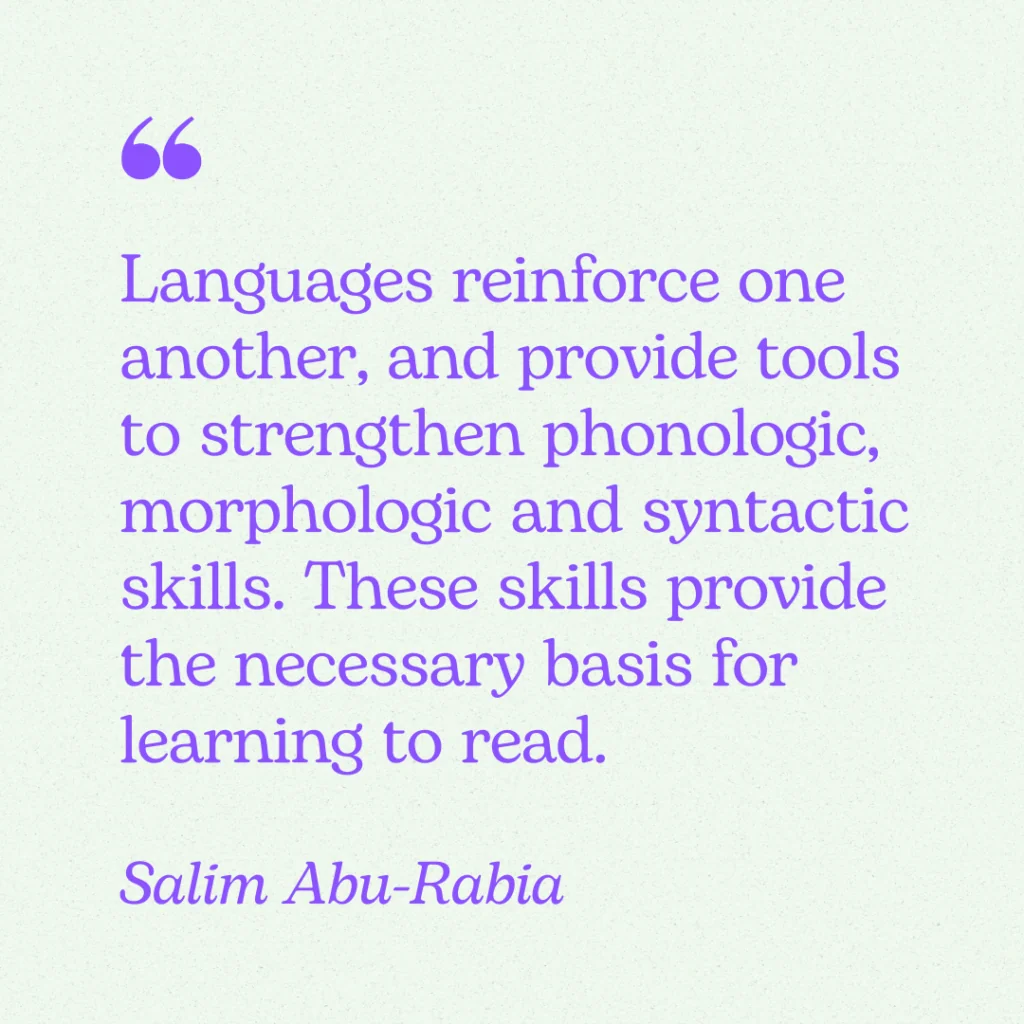Learning a new language is far easier, when it is not your first rodeo. However, sometimes even the languages in the same families are quite different and hard to jump between. In which cases the already existing knowledge can help you memorize the vocabulary and train your speaking?

✅ AI Essay Writer ✅ AI Detector ✅ Plagchecker ✅ Paraphraser
✅ Summarizer ✅ Citation Generator
Key Takeaways:
- Languages within the same family share grammatical structures, vocabulary, and phonetics, making it easier to learn a new language after mastering a related one. For example, knowing Spanish can make learning Italian more straightforward due to their common Romance language roots.
- Bilingual individuals have a distinct advantage in learning new languages. Their experience with different linguistic systems enhances their ability to identify patterns, understand nuances, and adapt to new phonetics.
- The ease of learning a new language is subjective and influenced by the learner’s native language. Challenges such as different language scripts (like Latin versus Cyrillic) and vastly different grammar structures can pose significant hurdles.
Language learning is a fascinating journey that raises a common question: does mastering one language make it easier to learn another? This curiosity stems from the intriguing world of linguistic similarities and language families. Languages that share a common ancestry often have similar structures, vocabularies, and sounds. For instance, knowing Spanish might make Italian seem less daunting because they both originate from the same language family. This concept suggests that our ability to learn new languages could be influenced by the languages we already know, offering a unique perspective on the interconnectedness of different languages and cultures. But when does this principle work?
One of the users on Reddit raised this question due to the fact of them being bilingual, but having problems with learning a third language.
“I grew up bilingual (English and Romani) so I thought Slovak would be easier to learn but boy was I wrong it took me 3 years. I recently learned that If you can understand Slovak you can understand Czech and most Polish?Anyone have any experience with this? Are some languages easier to learn once you learn another one? I’m studying French rn and it’s not as difficult as Slovak even tho I already spoke Romani.”
The Advantage of Language Families
Languages within the same family often share key characteristics like grammatical structures, vocabulary, and phonetics, which can significantly ease the learning process for new languages in that family. For example, Romance languages such as Spanish, French, and Italian have similar verb conjugations and noun genders, making it easier for learners to grasp these concepts when transitioning from one language to another within this group. Additionally, these languages often have cognates – words that sound similar and have the same meaning – further facilitating vocabulary acquisition. Prof. Abu-Rabia explains that language acquisition is typically boosted due to the fact the person is already proficient in another language.

Bilingual individuals already possess an advantage in this learning process. Their experience in navigating between different linguistic systems equips them with skills like identifying patterns, understanding language nuances, and adapting to new phonetics. This experience not only speeds up the learning of a new language but also enhances their cognitive flexibility in language use.
“If you already know a related language, you start learning the new language with an advantage, yes, whether it’s through passively understanding part of the vocabulary that is similar (beware of false friends, though), or through having an easier time understanding grammar concepts that also exist in the other language you know.”
Essentially, for bilinguals, their pre-existing linguistic knowledge acts as a stepping stone to mastering additional languages, especially those within the same language family.
Cognitive Benefits and Transferable Skills in Multilingual Learning
Learning a second language offers a wealth of cognitive benefits that extend well beyond communication. This process not only enriches mental capabilities but also primes the brain for additional language acquisition. When we learn a new language, our brain develops and strengthens neural pathways, enhancing its plasticity. This increased mental flexibility makes it easier to adapt to and absorb new languages.
“When you first learn a foreign language, part of what you need to learn is how to learn a language. When you then start learning a second foreign language at some later point, you already have a better idea of how to learn a language, and what does and doesn’t work for you, which probably also makes the second language feel easier.”
Skills developed in the course of learning a second language, such as pronunciation, grammar comprehension, and vocabulary retention, are not confined to that language alone. These skills are, in fact, transferable to subsequent language learning. For example, the ability to distinguish and reproduce different sounds in one language can aid in mastering pronunciation in another. Similarly, understanding the structure of a sentence in one language can provide insights into the grammatical framework of another, especially if they share linguistic roots. Vocabulary retention skills also become refined with each new language learned, as the brain becomes more adept at memorizing and recalling new words.
Furthermore, the process of learning a second language often involves strategies for breaking down and understanding new linguistic patterns, which can be applied when tackling additional languages. This not only makes the learning process more efficient but also more enjoyable, as each new language brings with it a sense of familiarity and achievable challenge. In essence, the journey of becoming bilingual sets the stage for a smoother and more effective multilingual learning experience.
The Subjectivity and Challenges of Language Learning
The ease of learning a new language is a subjective experience, heavily influenced by one’s native language. This subjectivity is rooted in the similarities and differences between the language being learned and the learner’s mother tongue. For instance, someone whose native language uses the Latin alphabet may find it more challenging to learn a language that uses the Cyrillic script. The unfamiliarity with a new script adds an extra layer of complexity, as it requires the learner to not only understand new phonetic sounds but also to recognize and write different symbols.
“As Estonian and Finnish, Hungarian is also a Finno-Uralic language, but to be honest, I cannot understand any word in Hungarian. It’s even hard to believe that Hungarian can be related to Estonian.”
Moreover, radically different grammar structures can present significant hurdles. A language’s grammar encompasses its rules and the ways its words are used and arranged. When these rules differ substantially from those in the learner’s native language, it can lead to confusion and a steeper learning curve. For example, the sentence structure in languages like Japanese or Korean can be quite different from that of English, posing challenges for English speakers.
Thus, while learning a new language can be an enriching experience, it’s important to acknowledge the varied challenges it can present, influenced by the unique linguistic background of each learner.
Conclusion
Certain languages are easier to learn after mastering another, primarily due to the linguistic similarities they share. Languages within the same family often have comparable grammatical structures, vocabulary, and pronunciation patterns. For instance, mastering Spanish can simplify learning Italian, as both belong to the Romance language family and share many linguistic traits. These similarities provide a foundational understanding that accelerates the learning process of a new, yet related, language. The cognitive skills developed while learning the first language, such as memory techniques and pattern recognition, further aid in grasping another language within the same family more efficiently.
Follow us on Reddit for more insights and updates.





Comments (0)
Welcome to A*Help comments!
We’re all about debate and discussion at A*Help.
We value the diverse opinions of users, so you may find points of view that you don’t agree with. And that’s cool. However, there are certain things we’re not OK with: attempts to manipulate our data in any way, for example, or the posting of discriminative, offensive, hateful, or disparaging material.